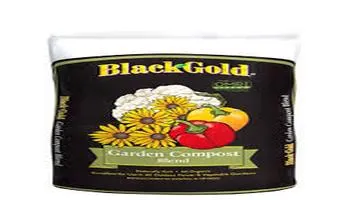Review of Organic Compost: The Black Gold of Gardening
Organic compost is a nutrient-rich material created through the natural decomposition of organic matter, such as leaves, vegetable scraps, and yard waste. This process is facilitated by microorganisms, including bacteria and fungi, which break down the materials into a dark, crumbly substance resembling soil. Organic compost is highly valued in gardening and agriculture for its ability to improve soil structure, enhance moisture retention, and provide essential nutrients to plants. It promotes healthy root development and increases soil biodiversity, fostering a more resilient ecosystem. By recycling organic waste into compost, it also reduces landfill usage and greenhouse gas emissions. An environmentally friendly alternative to chemical fertilizers, organic compost supports sustainable farming practices and contributes to healthier plant growth.

In the world of gardening and sustainable agriculture, few resources are as valuable and versatile as organic compost. Often referred to as "black gold," organic compost is a rich, dark substance created from the decomposition of organic matter such as leaves, kitchen scraps, grass clippings, and other plant-based materials. This review will delve into the myriad benefits, usage, and considerations of organic compost, showcasing why it is an indispensable tool for both amateur gardeners and professional horticulturists.
Nutrient-Rich Composition
One of the standout features of organic compost is its nutrient-rich composition. Unlike synthetic fertilizers that often contain only a few specific nutrients, compost offers a broad spectrum of essential nutrients including nitrogen, phosphorus, potassium, and a variety of micronutrients. These nutrients are released slowly over time, providing a steady supply that plants can utilize efficiently. This gradual release helps to prevent nutrient leaching and reduces the need for frequent reapplication, making compost both environmentally friendly and cost-effective.
Soil Structure and Health
Another significant advantage of organic compost is its ability to improve soil structure. Compost enhances the soil's physical properties, increasing its ability to retain moisture and improving aeration. This is particularly beneficial for sandy soils, which tend to drain quickly, and clay soils, which can become compacted and waterlogged. By adding organic matter, compost helps to create a crumbly, well-aerated soil that supports robust root growth and overall plant health.
Compost also fosters a thriving soil ecosystem. It introduces and supports a diverse range of beneficial microorganisms, including bacteria, fungi, and earthworms. These organisms play crucial roles in breaking down organic matter, cycling nutrients, and suppressing soil-borne diseases. A healthy soil microbiome is fundamental to sustainable gardening practices and can lead to more resilient plants and higher yields.
Environmental Benefits
The environmental benefits of using organic compost are manifold. First and foremost, composting helps to reduce the amount of organic waste that ends up in landfills. Organic waste in landfills decomposes anaerobically, producing methane, a potent greenhouse gas. By composting kitchen scraps and yard waste, individuals can significantly cut down on methane emissions and contribute to a reduction in overall greenhouse gases.
Moreover, composting recycles nutrients back into the soil, promoting a closed-loop system that mimics natural processes. This reduces the reliance on chemical fertilizers, which are energy-intensive to produce and can have detrimental effects on the environment, such as water pollution through runoff. Organic compost, on the other hand, enhances soil fertility naturally and sustainably.
Application and Usage
Applying organic compost is straightforward and can be tailored to various gardening needs. For general soil improvement, a layer of compost can be spread across the garden bed and worked into the top few inches of soil. This is best done in the fall or early spring, allowing the compost to integrate with the soil before the growing season begins.
Compost can also be used as mulch. A thick layer of compost spread around the base of plants helps to suppress weeds, retain soil moisture, and gradually release nutrients. This dual-purpose application saves time and resources, making it an efficient gardening practice.
For those involved in container gardening, compost can be mixed with potting soil to enhance its nutrient content and water-holding capacity. This is particularly useful for growing vegetables, herbs, and flowers in pots, where soil health can quickly degrade without regular replenishment of organic matter.
Considerations and Challenges
While the benefits of organic compost are numerous, there are some considerations and challenges to keep in mind. The quality of compost can vary significantly depending on the source and the materials used. Compost that has not fully decomposed can harbor pathogens or weed seeds, which can cause problems in the garden. It is essential to ensure that compost is well-aged and has reached a stable, humus-like state before application.
Another challenge is the potential for nutrient imbalances. Although compost is a great all-around soil amendment, it may not meet the specific nutritional needs of certain plants, particularly those with high nutrient demands. In such cases, additional fertilization may be necessary. Gardeners should regularly test their soil to monitor nutrient levels and adjust their compost and fertilizer usage accordingly.
Conclusion
In conclusion, organic compost is a powerhouse in the realm of gardening and sustainable agriculture. Its ability to enrich soil, support beneficial microorganisms, and promote environmental sustainability makes it an invaluable resource for anyone looking to cultivate healthy, productive gardens. While there are some considerations to keep in mind regarding compost quality and nutrient balance, the overall benefits far outweigh these challenges. Embracing organic composting practices not only nurtures plants and soil but also contributes to a healthier planet, making it a true "black gold" in the world of horticulture.






